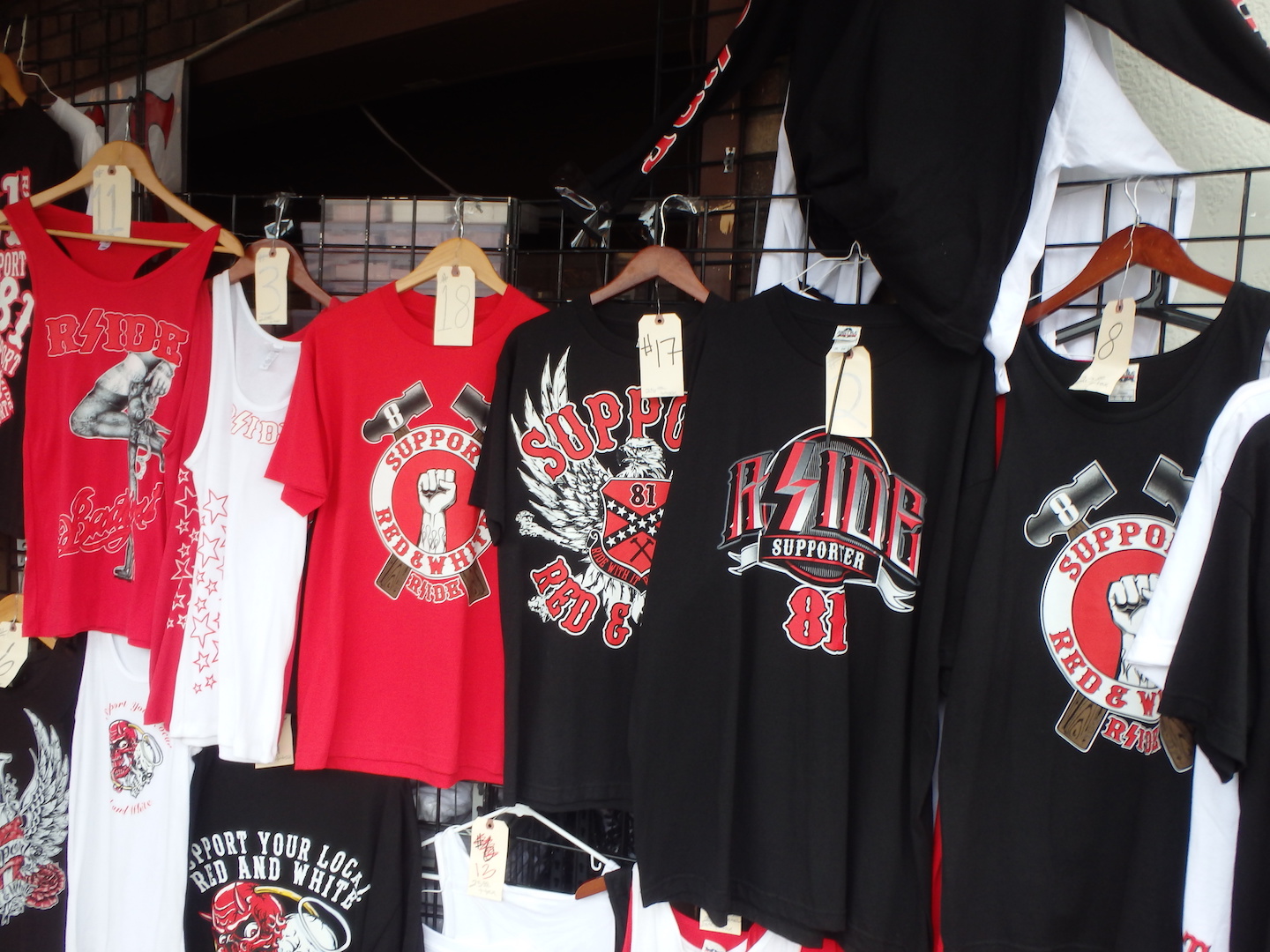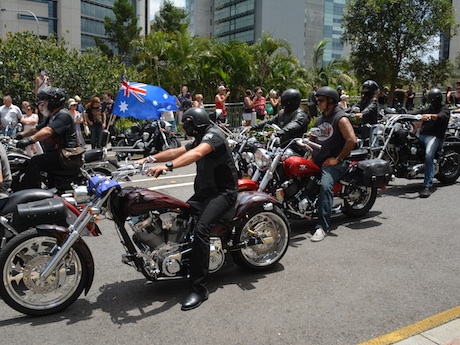A new Bill replacing Queensland’s so-called VLAD “anti-bikie” laws indicates there is less chance of innocent riders accidentally consorting at a Toy Run, charity event or shop ride.
These new laws were passed on Tuesday night with support from members of the Katter’s Australian Party who were concerned about law-abiding riders being targeted by police.
The former Orwellian-sounding Vicious Lawless Associates Disestablishment or “VLAD” Act is now replaced by the Serious and Organised Crime Legislation Amendment Bill with the less evil-sounding acronym, SOCLAB.
The 447-page SOCLAB document includes the welcome addition of child exploitation and financial fraud measures, but there are still concerns.
Contradictory Bill
We are still seeking legal opinion, but it appears there are no longer any named outlawed motorcycle clubs.
SOCLAB omits the VLAD-associated Criminal Gangs Disruption Amendment Bill that declared 26 motorcycle clubs as criminal organisations.
It therefore seems there is more of an onus on police to present evidence that a club is an outlaw organisation and for the courts to decide.
Yet the government says all currently closed clubhouses will remain closed. That may be pending police evidence and a court decision.
This is pivotal to other laws on consorting and insignias, patches or colours.
‘Softer’ consorting laws
If there are no longer any declared outlaw clubs, then surely the “softer” consorting laws mean you should face no risks of a breach of the law if you attend a Toy Run or shop ride where “known outlaws” may be present.
That is, unless you had been previously warned by police not to consort with two or more convicted offenders or an outlawed association.
Innocent Queensland and interstate riders now have less to fear about riding in groups and being stopped and harassed by police, although there is no guarantee.
Consorting is now determined on a case-by-case basis with family members and legitimate meetings exempt, rather than a blanket coverage.
That means any outstanding consorting charges under VLAD should now be dropped.
Fashion police
Meanwhile, SOCLAB introduces a “fashion police” clause that makes it an offence to wear “colours” in public, not just licensed premises as it was under VLAD.
Offenders face 18 months’ jail for a third offence.
However, again we have the problem of knowing which patches are outlawed since the 26 club section has been omitted.
The reasoning colours or insignia of declared criminal organisations are banned is that “members of the public have the right to enjoy themselves in licensed premises free from any fear or intimidation”.
Where do club riders stand?
Innocent recreational club riders who wear “pseudo colours”, such as Ulysses, HOG, the fictional Sons of Anarchy or colours of overseas bikie gangs not operating in Australia appear to be safe.
Under the previous VLAD laws, you were guilty until proven innocent.
Under these laws, it would be up to police to present evidence that these “colours” cause fear among the public and/or conduct illegal activities.
Critic responds
Ex-Detective Inspector and now university professor Terry Goldsworthy has been a prolific critic of the “poorly thought out and rushed” VLAD laws.
He says SOCLAB is “a vast improvement”.
“These laws have been arrived as after a consultative process where an evidence has been used to inform policy, something that was lacking in the VLAD laws,” he says.
“Some of the strengths of these laws, in particular the consorting laws, are that they have been tried and tested in NSW. On the basis of this they should be able to withstand legal challenges and also result in convictions, something sadly lacking in the VLAD laws.
“The other bonus is that most of the new powers etc have been moved back to decisions by the courts, so we once again have judicial oversight of police actions, rather than just arbitrary decisions made by politicians. The laws will have a much greater focus on serious and organised crime.”
Terry has disagreed in the past with the new “fashion police” clause.
“I look forward to seeing the evidence of linkage between the wearing of an item of clothing in public and the commission of acts of organised crime activity,” he says.
However, there is an interesting loophole in the new laws that allows you to wear banned “colours” for a “genuine artistic, educational, legal or law-enforcement purpose”.
While most motorcycle clubs forbid their colours and official logos to be worn or used by non members, the Hells Angels make big business out of selling supporter fashion gear.

It is unknown whether you would be allowed to wear such apparel under the new legislation’s “loophole”. You could argue you are wearing it for a “genuine artistic, educational or legal” purpose.
Bikie law background
The Vicious Lawless Association Disestablishment Bill 2013 was rushed through Queensland Parliament and passed at 2.50am on October 16, less than 12 hours after it was drafted.
The government at the time claimed they were the toughest anti-bikie laws in the world.
The VLAD laws were accompanied by the Tattoo Parlours Bill and the Criminal Law Criminal Gangs Destruction Amendment Bill that provided an extra 18 months’ jail for any member of a criminal motorcycle gang found to own or operate a tattoo parlour, and up to seven years jail for those members who gather in groups.
Those laws and penalties have now been “softened” to consider a person’s innocent background or criminal history, rather than a blanket ban over membership of a club.
Terry says the VLAD laws failed and actually increased some organised crime offences and the number of “bikie gang” members.
No member of any of the listed motorcycle clubs has been successfully prosecuted under the laws.
The only conviction was for a drug smuggler with no association to any motorcycle club. He even used a plane to smuggle drugs, not a motorcycle.



